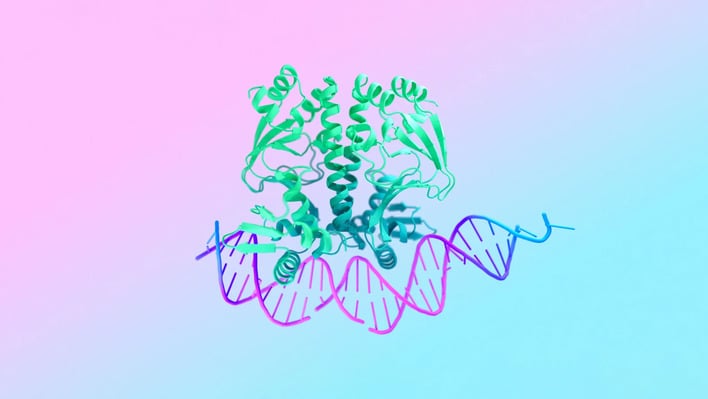
Google’s DeepMind AlphaFold team is taking the wraps off its latest model, the AlphaFold 3, a model that can be employed by researchers to develop new drugs, life science innovations. This new model brings a 50% uplift over existing models, and what Google says goes “beyond proteins to a broad spectrum of biomolecules.” Prior AlphaFold, models have been used to develop new vaccines, cancer treatments, and enzyme designs.
AlphaFold 3 can take a list of molecules inputted by researchers and use that information to generate 3D structures, which gives critical insight into how it all works together. Google says that AlphaFold 3 can now model “large biomolecules such as proteins, DNA and RNA, as well as small molecules, also known as ligands — a category that encompasses many drug types.” The model can also give insight into how molecules that control healthy cells might be affected by chemical modifications.

These advancements are thanks to the improvements made to the AlphaFold 3’s Evoformer module, which Google says is a deep learning architecture that can now cover all of life’s molecules. This module is an important part that enables AlphaFold 3’s ability to make its predictions alongside a diffusion network. According to Google AlphaFold 3 is special because “as a single model that computes entire molecular complexes in a holistic way, it’s uniquely able to unify scientific insights.”
Google is making sure that as many researchers as possible have access to AlphaFold 3 with the AlphaFold Server platform, which is free for non-commercial research. This is important because it means that researchers outside of those found at large pharmaceutical companies will be able to have this type of powerful tool at their disposal. This might lead to breakthroughs in areas of science that might not be worth exploring by for-profit entities.
In an era where AI is being used mostly for content creation, productivity and other more pedestrian tasks, it’s nice to see that there are still endeavors in just doing meaningful scientific work. The fact that Google is opening up the tool to researchers that might not otherwise have access to it, makes it even better.